We all want to have enjoyable holidays, whether we’re creating memories with our friends or families, starting new traditions, or merely taking a needed break from our daily lives. No one wants a memorable holiday because of an emergency. While not all emergencies are avoidable, the 5 questions below can help you plan your holidays in order to keep everyone as safe as possible, and help prepare you, in the event of an unavoidable emergency.
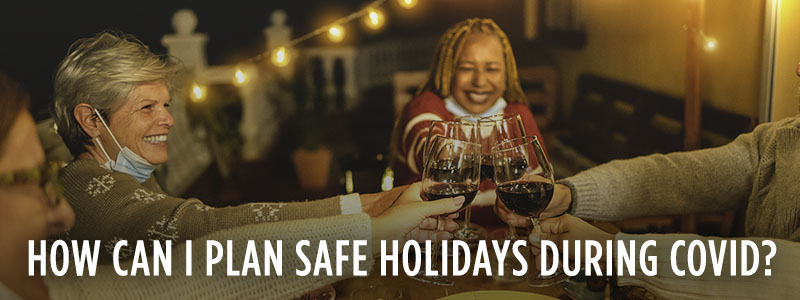
This year, staying safe during the holidays looks a little different. In addition to the standard safety measures, we need to take into account the pandemic and ways to prevent spreading it. The easiest way to prevent the spread of the Coronavirus is to celebrate with just your immediate household. However, if you intend to host or attend a gathering, keep in mind the basic considerations for preventing the spread of COVID-19:
- Outdoor gatherings are safer than those indoors. If you are staying in the Houston-area, the weather has the potential to be lovely.
- Smaller gatherings are safer than larger gatherings. Keep the invitation list small enough to safely social distance.
- Hygiene is still important. Make sure there are masks and hand sanitizer available, wash hands frequently, don’t physically interact with people outside your household, and keep from touching your face.
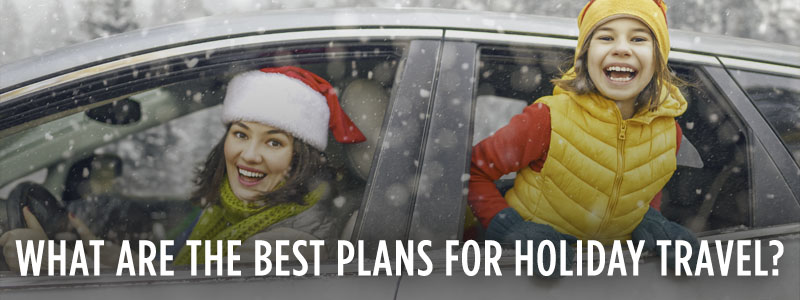
Most people seem to be traveling by car these days, as they avoid potential COVID exposure on airplanes. If you are planning to drive to holiday gatherings, make a plan to arrive safely and deal with emergencies if they come up.
- Make sure your vehicle maintenance is up to date before hitting the road for the holidays. This includes oil, tires, and any winter maintenance that should be done if you’re traveling to cooler climates. And of course, the basics – never drink & drive, and make sure everyone is wearing seatbelts.
- Pack an emergency supply kit that includes jumper cables, a tire change kit, a blanket, water and snacks, a fire extinguisher, flares, a back-up power bank, a flashlight, and a map.
- Provide someone with the details about your travels, such as where you are headed, the route you plan to take, and your ETA.
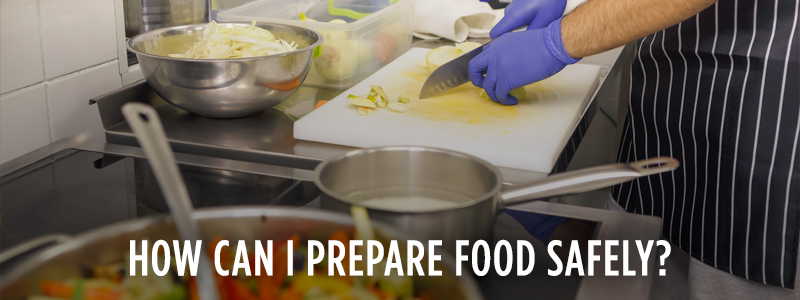
Many holiday traditions include special treats or meals. While preparing the rich and delicious foods that have become traditions, it’s important to practice safe food handling and kitchen safety in order to prevent a kitchen catastrophe.
- Practice safe food handling. Always wash your hands before cooking, and after handling raw meat. Make sure that foods are heated to and stored at their proper temperatures to avoid bacterial growth. Keep raw meat away from other foods – including using separate cutting boards – in order to prevent contamination.
- Keep an eye on knives and stoves. It’s important to make sure knives are sharp so that they don’t slip, that your cutting surface is stable, and that you cut away from your fingers and body. If you are distracted, put your knife down. During the holidays, people may have visiting children in their home. Keep knives and hot pots and pans out of the reach of little fingers.
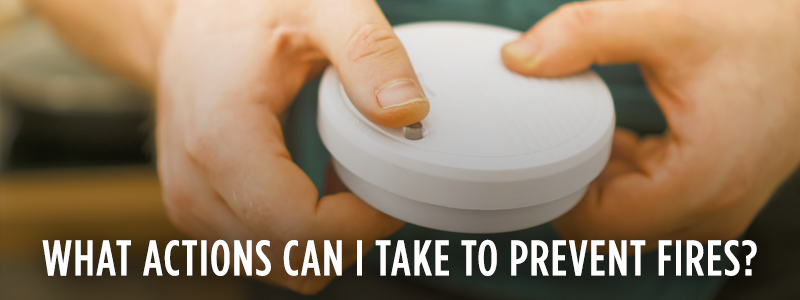
A holiday fire will quickly dampen celebrations. Make sure that you take precautions with cooking and decorating in order to prevent a house fire.
- Cook safely by moving any items that can burn away from the stove, and never leaving cooking unattended. Wear short sleeves (or roll your sleeves up) to prevent catching your clothing on fire.
- Decorate carefully. Make sure that you keep candles 12 inches away from anything flammable, or consider using flameless candles. If you have a tree, make sure it has enough water and always unplug the lights before bed or when you leave the house.
- Finally, make sure you always have working smoke alarms.
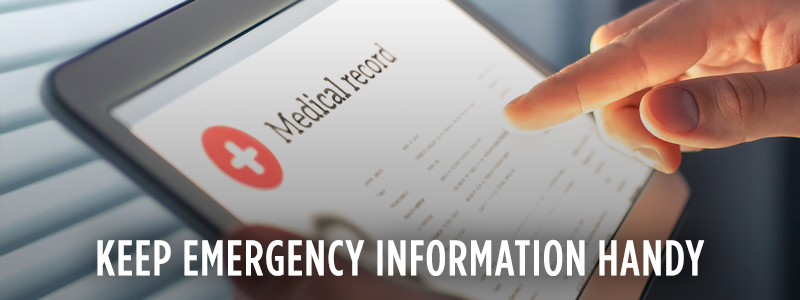
In the event of an emergency, it’s best to be prepared and have all of your emergency information in one place. We have a guide to organizing your emergency medical information. In addition, you will want to have a plan for several types of emergencies.
- For medical emergencies, know where your nearest Neighbors Emergency Center location is.
- In the event of a fire, plan and practice escape routes and establish a meeting place outside your home.
- For travel emergencies, make sure that you have your vehicle insurance, roadside assistance (sometimes available through your insurance), and the local numbers for local sherrifs’ offices or local emergency roadside assistance on hand.
Everyone at Neighbors Emergency Centers wishes our communities safe & healthy holidays.
